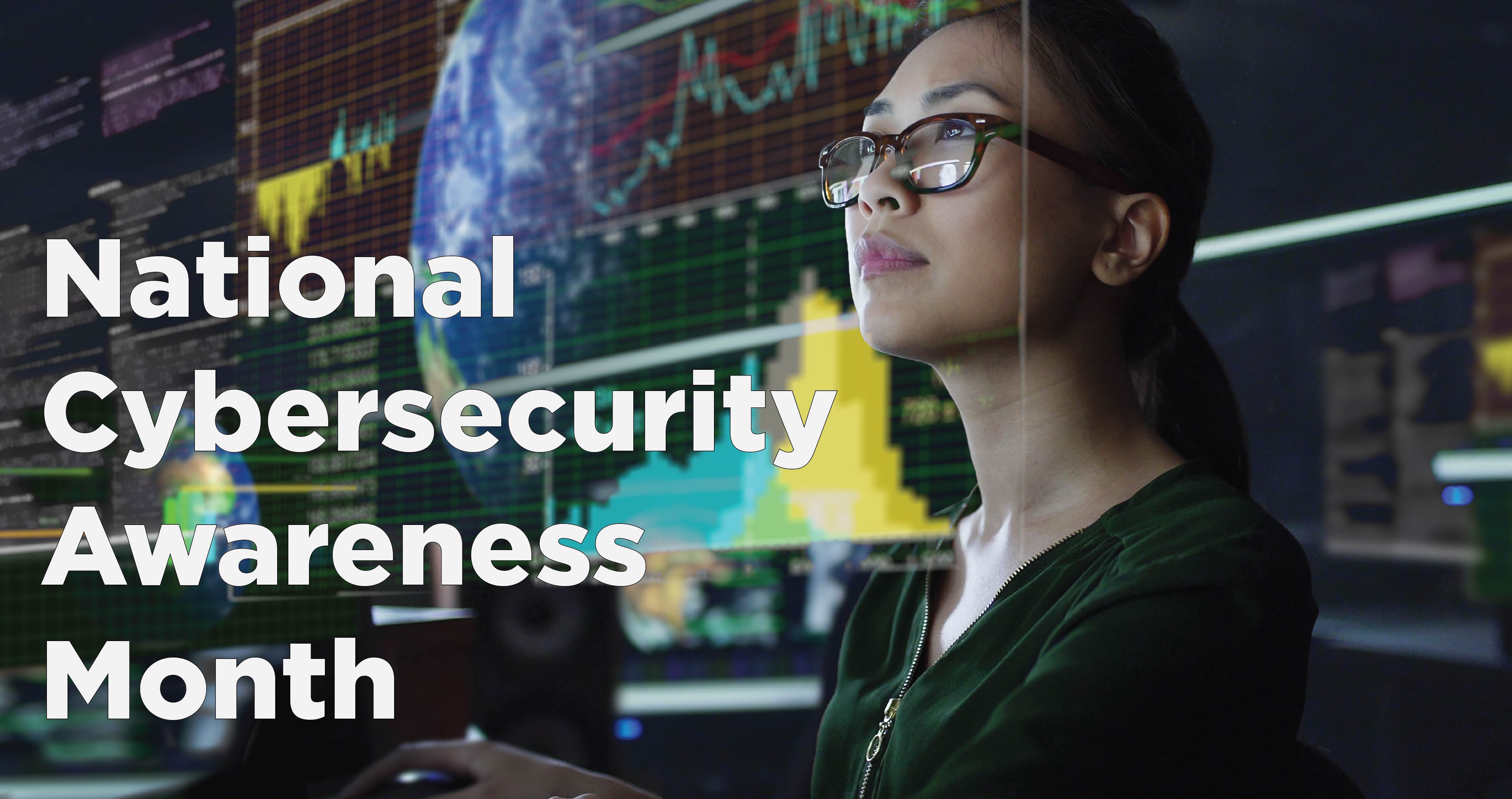
Technology is an integral part of our modern, pandemic life. Every day, millions of people meet virtually over Zoom and Facetime, exchange money through apps and blockchains, and, for better and worse, store private information like medical records, addresses, and more online. Today, this dependence on the internet has created a virtual goldmine for hackers to mine, phish and steal sensitive information. With October comes National Cybersecurity Awareness month, which promises to tackle the nation’s most pressing cybersecurity risks to keep you and your loved ones’ finances, education and sensitive data cyber-safe.
Week One: Be Cyber Smart
Week one of National Cyber Security month will focus on big picture topics surrounding how to practice cybersecurity. Cybersecurity is the practice of protecting networks, devices, programs, and data from attack, damage, or unauthorized access. Staying cyber-safe and keeping your information secure doesn’t just benefit you; it helps everyone you connect with virtually.
Tips for being #CyberSmart include:
1. Keeping your software, web browser and applications up to date
2. Have automatic updates preferences turned on
3. Back up your data regularly to multiple locations
3. Don’t visit untrusted websites
4. Do your research before downloading anything
This year, proactive cybersecurity practices are especially crucial to U.S. universities. Howard University in Washington, DC, is one of 19 universities whose cybersecurity systems have been attacked this year. The breach at Howard University alone damaged the school’s wifi, cloud-based storage system, on-campus computers and caused a school-wide cancellation.
Week Two: Fight the Phish!
Week two of October’s Cybersecurity month will dive into the spooky nature of phishing attacks! Phishing is an attempt at email fraud. A perpetrator sends an email appearing to be legitimate to obtain personal or financial information.
Phishing attacks are challenging to deal with; here are tips and tricks to reduce the impact of phishing!
First, always be cautious when giving out your contact information. Never give your email or phone number to someone you don’t trust.
Second, report any potential phishing. To do this, open the email, click the three dots next to “Reply” at upper-right, and select “report phishing”. A window will appear, asking you to confirm your report.
Third, block emails from the email address. To do this, click the three dots next to “Reply” again, and select “Block”. Again, a Window will appear asking you to confirm blocking the email address. This will ensure that any further emails from this address will be marked as spam.
Third, if you’re sure an email you’ve received is fraudulent, forward it to the Boise State Help Desk; they’ll catalog the attack and let others know of the threat!
For more information on what to do when you encounter a phishing attack, visit the Boise State University Office of Technology phishing attack guide!
Week Three: Explore. Experience. Share – Cybersecurity Career Awareness Week
With the monumental need for proper cybersecurity on the individual, campus-wide and worldwide scale, protecting cybersystems isn’t just a daily practice; it’s a stable career option. A 2019 study conducted by the Herjavec Group, a leader in cybersecurity operations, predicted that as of 2021, there will be 3.5 million open cyber positions around the world – with “a 350 percent growth in open cybersecurity positions from 2013 to 2021”, this trend is likely to continue upward. The findings in studies like this one are why week three of Cyber Security awareness month focuses on how you can get into the cybersecurity job field!
For those interested in a degree in cybersecurity, Boise State has you covered. Boise State’s Cyber Operations and Resilience (CORe) programs are online and asynchronous, which means you can earn your degree whenever and wherever! The curriculum teaches you to detect and mitigate cyber and physical infrastructure threats through creative problem-solving. For more information on Boise State’s Cyber Operations and Resilience programs, visit the website today or read one of our cyber operations student features!
Week Four: Cybersecurity First
The final week of Cybersecurity month is about making security a priority. A cybersecurity breach can happen to anyone, but those prepared are far less likely to lose important, sensitive data to hackers. Cybersecurity cannot be an afterthought.
Be sure to incorporate the things you’ve learned throughout the month into your life like being cyber smart and watching out for phishing. Discuss cybersecurity best practices with your friends and family to mitigate everyone’s risk. Lastly, consider joining Boise State’s Cyber Operations and Resilience program to earn your degree in the global cybersecurity job market!
Want to learn more?
For more information on everything Cybersecurity related, tune into Boise State’s Facebook, Instagram, Twitter and LinkedIn pages all month long as we will be sharing tips + tricks to help YOU #BeCyberSmart!
If you’re looking to dive into the world of Cyber Operations and Resilience with an online degree from Boise State, contact one of our student success coaches today!
Connect with the Cyber Operations and Resilience Student Success Coach